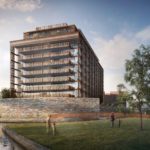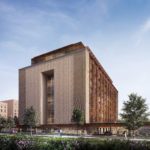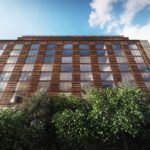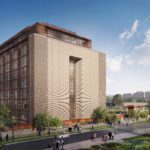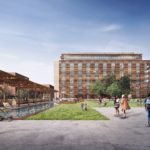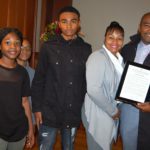ANC Marathon: K St. Bike Lanes, West Heating Plant, More
By • September 7, 2017 0 2521
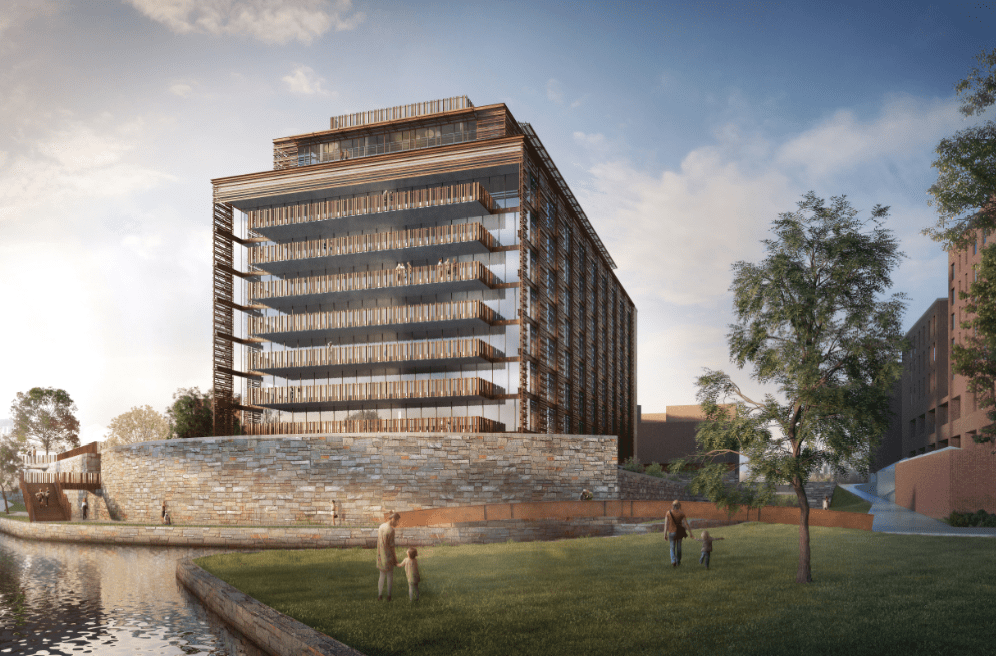
If, in 1974, the creators of D.C.’s hyperlocal advisory neighborhood commissions wanted concerned citizens to meet in the tradition of American town halls, taking up questions of development, traffic, zoning, safety, sanitation and improvements to streets and homes with a diversity of neighbors speaking forth, their democratic dreams seem to have been realized.
This realization was evident at the Sept. 6 Georgetown-Burleith ANC meeting, where architects of multimillion-dollar projects were standing in the back or sitting on the floor. Nearby, an elderly member of a historic black church thanked the community for its work on a once-neglected cemetery, then turned to see young black family members stand proud with their father, a Metropolitan Police Department officer saluted by the group for his neighborhood involvement and upcoming retirement.
Representatives of the mayor’s office, the Council member’s office and government agencies each faced the audience and pitched the work aims of their bosses, seeking feedback from the standing-room-only crowd. The knowledge and the involvement of those assembled for this season-opener, which ran almost five hours, were evident to all.
The tribute to MPD officer Antonial Atkins was worthy and bittersweet. Atkins announced that he would retire, after 28 years as a cop, come Jan. 1, with Georgetown being his “best experience.” Among his accomplishments, Atkins said he hoped someone in MPD would carry on his “Walk the Beat” program, adding that he was “dissatisfied” that no officer had yet stepped up.
Other items and resolutions streamed along, of course, but two big projects were back for discussion: the District Department of Transportation plan for bike lanes along K Street, near the waterfront, where traffic is a cluster blankety-blank, to put it mildly; and the conversion of the West Heating Plant building and property into condominiums and a park on 29th Street.
Commissioner Lisa Palmer led the push for protected bike lanes, with a little bit of pushback. The ANC approved it, 6-2. Here is part of what Palmer said: “When I ask residents along the K/Water Street corridor for their opinion about the current conditions, I hear things like, ‘It takes two hours to get from my home on Water Street to Rock Creek.’ People send me videos of fistfights on the street where cyclists are weaving in and out of car traffic, and more. Then, you add in a constant stream of pedestrians and you have a scenario that is truly the Wild West, where most of the end-users of the roadway are unsuccessfully sharing the same 50 feet of space in an unpredictable and unsafe manner. One of our tasks on this ANC, I believe, is to position Georgetown for the future, to continue to attract people of all age brackets and lifestyles so that we can continue to live in a vital, interesting and forward-thinking community. And biking, as a mode of transportation and leisure, is 100-percent part of that future.”
This traffic issue will continue, no doubt — and the ANC indicated that things would revert to the previous configuration, if the behavior of motorists, pedestrians and bicyclists do not show improvement within six months.
The other item was the former West Heating Plant at 1051 29th St. NW, where, someday, 60 Four Seasons Private Residences might brighten the street, just south of the Four Seasons and the C&O Canal. The project team is impressive and does not lack ambition: The Levy Group, the Georgetown Company and the Four Seasons, which are “connected by appreciation for and experience in the preservation and adaptive reuse of historic buildings,” they hasten to add. The starchitects are David Adjaye (the National Museum of African American History and Culture, the Nobel Peace Center in Oslo and two D.C. public libraries) and Laurie Olin (Washington Monument Grounds, Bryant Park, the Barnes Foundation — and a park in Houston that drained perfectly after Hurricane Harvey).
With Richard Levy at the helm, the group has navigated past the sirens of regulations and requirements toward its goal of getting demolition approval by the mayor’s office in January. It enjoys neighborhood support.
On May 18, the U.S. Commission of Fine Arts voted unanimously (7-0) to approve the Adjaye/Olin concept design. According to the group, the CFA requested that Adjaye return with a “bolder” and “less literal” reinterpretation of the existing building, calling for a clear distinction between that which is being preserved and that which is being reconstructed. CFA also asked that Olin present a revision of the park that was more reflective of the site’s recent industrial history.
And that’s what they showed at the Sept. 6 ANC meeting. The team will return to CFA on Sept. 20 and present the revised design schemes to the D.C. Historic Preservation Review Board on Nov. 2.
- Rendering of the Rock Creek side of the West Heating Plant residences. Courtesy Levy Group.
- Rendering of the 29th Street side of West Heating Plant residences. Courtesy Levy Group.
- Rendering of the north side (C&O Canal) of West Heating Plant residences. Courtesy Levy Group.
- Rendering of the canal and west side of West Heating Plant residences. Courtesy Levy Group.
- Rendering of the south side of West Heating Plant residences, showing new park. Courtesy Levy Group.
- WIth children Tony, Megan and Michael, Stacey and Antonial Atikins celebrate salute by the community. Photo by Robert Devaney.

